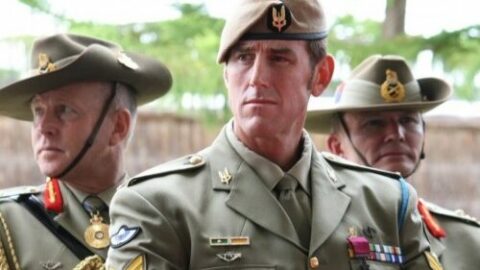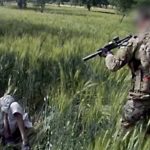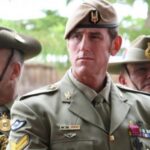Will Alleged Australian War Crimes Be Criminally Prosecuted?
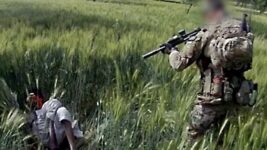
With the Ben Roberts Smith defamation trial underway, some are asking whether anything has been done about criminally prosecuting Australian soldiers accused by their peers of horrific war crimes against unarmed Afghan civilians and captured combatants – allegations which have been detailed in the extensive report compiled by highly-respected Supreme Court Justice, Major General Paul Brereton.
The proceedings, brought by Mr Roberts-Smith against The Age, The Sydney Morning Herald and The Canberra Times, has heard evidence from more than a dozen of the decorated officer’s former Special Air Service (SAS) comrades of war crimes they allegedly witnessed him commit in Aghanistan.
The Brereton Report
The Brereton Report was the result of a four-year long investigation, after several Australian soldiers chose to speak out about what they viewed as a “disregard for human life and dignity” shown by some of their colleagues in Afghanistan, as well as a culture of within the Australian Defence Force (ADF) of glorified “mateship” which actually translated into bullying and cover-ups.
The investigation identified at least 39 alleged murders of Afghan civilians and unarmed captured Afghan troops, and the cruel treatment of at least two more locals by SAS members.
A redacted version of the report was released at the end of 2020, with ADF officials and the Federal Government promising that it would be taken under consideration.
Special Investigator appointed
To that end, the Office of the Special Investigator (OSI) was established former Federal Defence Minister Linda Reynolds to consider bringing criminal charges against those alleged to have committed alleged murders and other war crimes.
The Office was established alongside a specialist oversight panel to deal with broader cultural reforms within the ADF.
At the time, the rhetoric from the Federal Government was along the lines of accepting there were cultural and conduct issues and addressing the ADF would address them, with a view to protecting Australia’s international reputation as well as the dignity of human life.
However, in a cabinet reshuffle early in 2021, which was around the same time Ms Reynolds took health leave, the Defence portfolio was handed over to Peter Dutton.
Since then, Mr Dutton’s office has reportedly received six reports from the oversight panel, but seems to have done nothing to bring about change.
ADF plan to address ‘systemic failings’
For its part, the ADF released a report in August 2021, outlining a plan to address the ‘systemic failings’ within its culture which were found in the Brereton Report.
In the report’s forward, ADF chief Angus Campbell and secretary Greg Moriarty said “serious and systemic organisational and cultural failings” had contributed to the misconduct identified and alleged by the Afghanistan inquiry.
“These failings created an environment which allowed Defence’s proud and respected reputation, earned by our professional and ethical personnel over decades, to be damaged by the actions of a few”, the report found.
“We accept responsibility for these failings in systems, culture and accountability and are committed both to addressing the failures and wrongdoing of the past and undertaking deep and enduring reform across the organisation.”
But Mr Dutton has remained tight-lipped on the issue, despite an original undertaking from his predecessor Ms Reynolds, that Parliament would be regularly updated.
Pursuing criminal charges against whistleblower
The fact that there is a high-profile defamation case before the courts involving one of Australia’s most decorated soldiers could mean that those charged with the responsibility to act are treading “softly softly” and behind closed doors.
That aside, there is something that the Australian Government could do immediately – end its relentless pursuit of original whistleblower David McBride who is still facing breaches of national security related criminal charges and the prospect of 50 years in prison, despite a growing body of information filtering into the public domain which, in the opinion of many, should exonerate him completely.
David McBride tried to raise the things he witnessed internally, within the ranks of the ADF, to no avail, and felt strongly enough about the issue, particularly its significance to the Australian public, to then leak documents to media, as anyone with a conscience might do in the same situation.
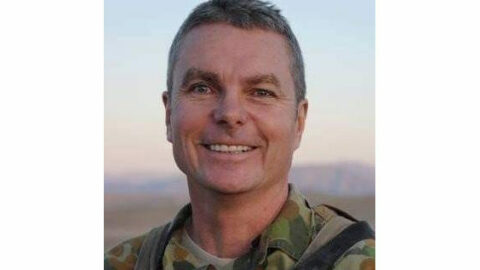
So the question needs to be asked – is there actually any political will to hold Australian soldiers to account for what allegedly happened in Afghanistan?
Not only were Afghan civilians allegedly intentionally killed – some of them brutally – by Australian soldiers, there are also many Australian soldiers deeply adversely affected by what they witnessed, or were coerced into participating in. For his bravery, in bringing information to light before many others, David McBride faces a lifetime in prison.
Failure to act on this issue is not simply a “lack of leadership” as has been touted around by the politicians in the lead up to the election. It appears disingenuous and to tarnish all Australians with shame, particularly the many tens of thousands of Australians who have fought honourably for this country when called upon to do so.
It also further condemns us globally, as a nation without compassion, lacking the humility to acknowledge and correct our mistakes. The latter means we’re likely never to learn from them either.
While the progress of ADF reforms remains under wraps, the OSI has told the International Criminal Court (ICC) that it intends to thoroughly and independently investigate, and, where appropriate, prosecute the allegations of criminal offences in Afghanistan from 2005 to 2016.”
The ICC does have the jurisdiction to prosecute war crimes, but only when a country’s own processes have failed or been inadequate.
The Ben Roberts-Smith defamation trial
The defamation trial of Ben Roberts-Smith, has prevented the issue of alleged atrocities by Australian soldiers in Afghanistan to be swept under the carpet.
Much of the testimony from witnesses from both sides of the trial has been difficult to ignore – allegations of “blooding rituals” which were designed to initiate new soldiers, as well as the brutal torture and killing of Afghan civilians, as outlined in the Brereton report.
The latest allegations are that a terrified captive Afghan teenage boy was shot in the head by Ben Roberts Smith himself.
And while the onus will be on the defendants – The Age, The Sydney Morning Herald and The Canberra Times – what clearly amounts to defamation if untrue, one wonders whether the allegations will ever see the inside of a criminal court, or what, if anything will be done about the alleged callous, cruel, criminal and indeed shameful conduct alleged against some Australian soldiers in Afghanistan.
